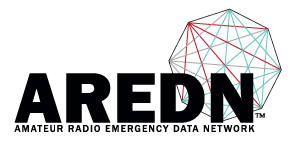For your deployments, are you using some type of pbx or sip server? Or are you dialing by IP or creating local phone books of some sort?
I really like the idea of not having a centralized server to depend upon, but I also like the ability to provide off-mesh calls or having a centralized phone book.
Moderator note: This topic was moved to this new thread.
Message originally posted by kg9dw


Since most (all?) VoIP phone support a central phone book via LDAP or HTTP, maybe a small program could be written to create and sync-up a phone book across the mesh and write them to a local LDAP/HTTP server. The phone just sees the local service.
For it to be truly decentralized, some type of gossip/peer discovery protocol would have to be used for info exchange.
Could be a fun project.
Moderator note: This comment moved to this thread.
Message originally posted by kf6nmz
In my pickup truck I have an asterisk switch, permanently mounted, running on a BeagleBone Black pre-programmed with about 15 extension. Drive to the field site, put out some mesh nodes and phones and I'm on the air. Since the pbx drives to the field site, this sidesteps the issue of having a central server and having to get back to it.
Things get better. This version of asterisk is based on the AllStar image. Thus, it is meant to connect to a radio. In this case, it is connected to my allband/allmode IC-7100. This enables any phone to get on the air on whatever frequency the radio is on, in addition to being a simple telephone extension.
I like to think of this as my approach to a go-kit. Instead of hauling a radio, antenna, power supply, et al inside a building, I take a small Mesh Node, a phone and a small battery and use the radio in the pickup truck. Not only does this save one from carrying all the equipment inside and setting it up, it also gets the radio outside where it can get out better and not be subject to any rf noise that will be inside the building.
Finally, I developed a custom dial plan for the pbx that allows it to do several types of dialing. I call it MeshPhone ℠. With it you can have
1. Normal extension to extension dialing.
2. Network dialing which includes a location code based on Area Codes plus local extension number.
3. Callsign dialing where you dial another ham's callsign. This can eliminate the need to have a directory. And, internal to asterisk, this callsign can be translated to either the local extension, a MeshPhone ℠ number, a sip enabled ip address or if there is Internet access, a public sip address such as sip:abcxyz@sip.linphone.org. Of course, tactical callsigns could be used instead of ham callsigns.
For installations that do not require access to a radio, I also have developed files to overlay on FreePBX that will do the same function.
73, Mark, N2MH
Weblinks
http://www.allstarlink.org
http://www.hamvoip.com
I was browsing this LDAP Cheat Sheet
http://software.clapper.org/cheat-sheets/ldap.html
when I noticed at the end there was a reference to a replication address entry.
Could this be multi-valued and how are the LDAP dbs kept in sync?
If backups could be auto-synch'ed and it was automatic, we might be able to implement this service fairly easily.
73,
Gordon
I think that for an incident in the field where 10, maybe 20 phones are needed, one needs to keep things simple. Configuring LDAP in the first place is not trivial and then the phones have to be configured and tested with this server. To keep things simple, if you run POTS phones (analog 2-wire) with Analog Telephone Adapters, you can't even support LDAP. Perhaps the best solution here is a one or two-sided telephone directory cheat sheet, preferably laminated and maybe attached to the phone somehow.
73, Mark, N2MH
VoIP Direct is done by way of Pi PBX and Granstream 701T units to analogue phones.